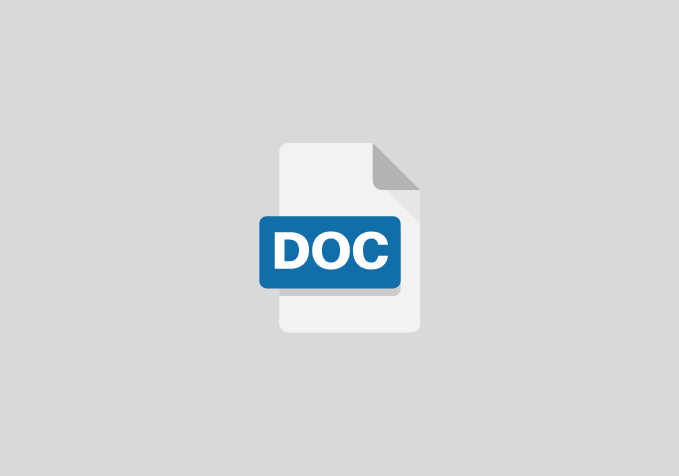The Impact of Social Media on National Security: A Case Study of Offa Residents
Chapter One
OBJECTIVE OF THE STUDY
The objectives of the study are;
- To examine the threats of social media technology to Nigeria’s national security
- To examine the use of social media by the military in preventing, limiting, or removing threats to national security
- To ascertain the relationship between social media and national security
Chapter Two
Review of Related Literature
Introduction
The new generational media has transformed the audience from passive readers to a more active, effective, and interactive sphere of the global community. A recent survey shows a rapid increase in the number of social media users across the world. This is a result of the proliferation of mobile internet across the globe and the emergencies of web 2.0 which gives many people an opportunity not just to read the contents of what was formerly regarded as a static web page, but to also contribute instantly to what they find interesting on the internet. Social media has paved way for millions of people across the world to locate content, make friends, share ideas, solicit support and mobilize people with similar interest against unfavourable government policies, despotic and weak leaders, and injustice, amongst others. Social media has of course, redefined the way news is presented in the public and the way people communicate across the world. It is a fascinating phenomenon which presents both challenges and opportunities to governments and law enforcement agencies across the spectrum.( http://thenationonlineng.net). Undoubtedly, social media (SM) can be seen as the most widely accepted technological invention in the 21st century. SM is now a social communication norm in developing countries. SM promotes positive and negative agendas. Globally, terrorists, separatists, political organisations, religious groups, individuals and so on are using SM to spread their information and ideas (www.econjournals.com). Generally, media plays a very important role in the global fight against terrorism (Ngige et al., 2016). In the same manner, media (SM) can be used to fuel different kinds of terrorism and other criminal activities. In recent years, Nigeria’s national security has been threatened by different forms of terrorism challenges, which has affected lives and properties worth billions of Naira. Among the 21st century internet inventions, SM has defined and changed social and political interactions and communication across nations. Terrorist and other criminal groups are using SM to pass their information to the general public, because the platform is cheap and readily accessible (Ngige et al., 2016). While the general public also uses SM to understand, and keep in touch with different kinds of socio-economic, political and social events, SM is no longer a new invention for the Nigerian society, whereby many young, old, private and public organisations make use of the platform on a daily basis. The high level of SM penetration in Nigeria increased its use in discussing terrorism-related issues and any other form of social, political or religious attacks and rumors (social and religious security issues).
Social media platforms has far reaching social and security implications for the people of Nigeria, their government and its national security agencies such as the military and the police. This study’s key concerns are on social media and national security threats in Nigeria. Advances in the sciences of computers have enabled social media to grow and reach the point where the exchange of information, both for good or evil now occurs on a global scale. For Nigeria’s national security planners, this information superhighway creates many challenges. In a world of “active global listening, higher premiums are placed on the ability of intelligence agencies to sort the background “chatter” from the more critical and useful information that forms intelligence for security agencies and decision makers. Despite the fact that social media is outside state control and does not discriminate. Nevertheless, the study will demonstrate that their use can lead help state foresee how emerging threats will present themselves in the future and figure out how to counter their effects.
References
- rmour ،L.(2006). “Public Relation Autonomy” retrieved Februar. Bertrand, I and Hughes, P, (2005). Media Research Methods, Audiences, Institutions, Texts,New York:Palgrave.
- Botan, Carl H.(2006). Public relations theory, (Routledge Communication Series).
- Cazeneuve, J. (1974).La société de l’ubiquité, communication et diffusion, scientific journal, Vol 26 ,Issue 26 , pp. 40-42
- Culbertson, H.M;Jeffers,D.W;Stone,D.B;Terrell,M.(1993). Social, Political, and Economic Contexts in Public Relations: Theory and Cases, (Routledge Communication Series).
- Daymon, Ch., Holloway, I.(2010). Qualitative Research Methods in Public Relations and Marketing Communications.Routledge, 2 edition.
- Hirschhorn,L.(1986), Beyond Mechanization: Work and Technology in a Postindustrial Age,MIT press.
- Laver, M.(1989).Information technology : Agent of – change;New York,Cambridge University Press.
- Lerner, D. (1964); Passing Traditional society; Modernozation of Middle East, Free Press.
- Rezvani Gilkalaei,Gh.(2008). Public relations management and communication behavior, gohare danesh press, Tehran, Iran.
- Skandari,M.(2004). Public opinion, public relations and communication, rah & danaei press,Tehran, Iran.
- Winch, P.(1985). The Idea of a Social Science and its Relation to Philosophy,Routledge & Kegan Paul.


